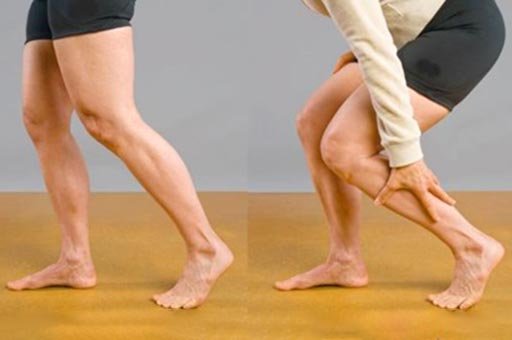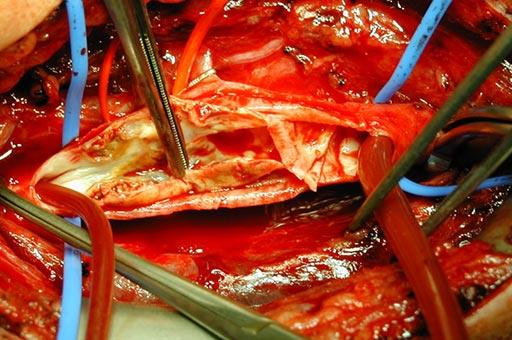These conditions primarily affect the arteries, which are blood vessels responsible for transporting oxygenated blood from the heart to the rest of the body. These conditions can manifest in various ways, from minor symptoms to life-threatening events. Early diagnosis and treatment are crucial to prevent life-threatening complications.
The peripheral arterial system can be afflicted by various conditions that compromise its function and structural integrity.

A common circulatory problem where narrowed arteries reduce blood flow to the limbs, often due to atherosclerosis.

A severe obstruction of the arteries which reduces blood flow to the extremities associated with severe leg pain at night, ulcers or gangrene.

Pain or cramping in the lower limbs during physical activity due to reduced blood flow.

A condition where the carotid arteries, the main blood vessels to the brain, become narrowed, usually due to atherosclerosis, leading to increased risk of future stroke and permanent disability.

The inability to achieve or maintain an erection suitable for sexual intercourse.
Arterial diseases can have severe implications if left untreated. If you or a loved one is experiencing any of the symptoms mentioned above, it is crucial to seek expert care immediately. Our team offers comprehensive diagnostic and treatment services tailored to individual needs.
38 Irrawaddy Road
#10-33
Singapore 329563
Tel: +65 6041 0933
1 Farrer Park Station Road
#08-14 Connexion
Singapore 217562
Tel: +65 6974 8859
HP: +65 8874 0371 (24 hours)
Email: contact@spectrum-surgery.com
© 2025 Spectrum Vascular & General Surgery